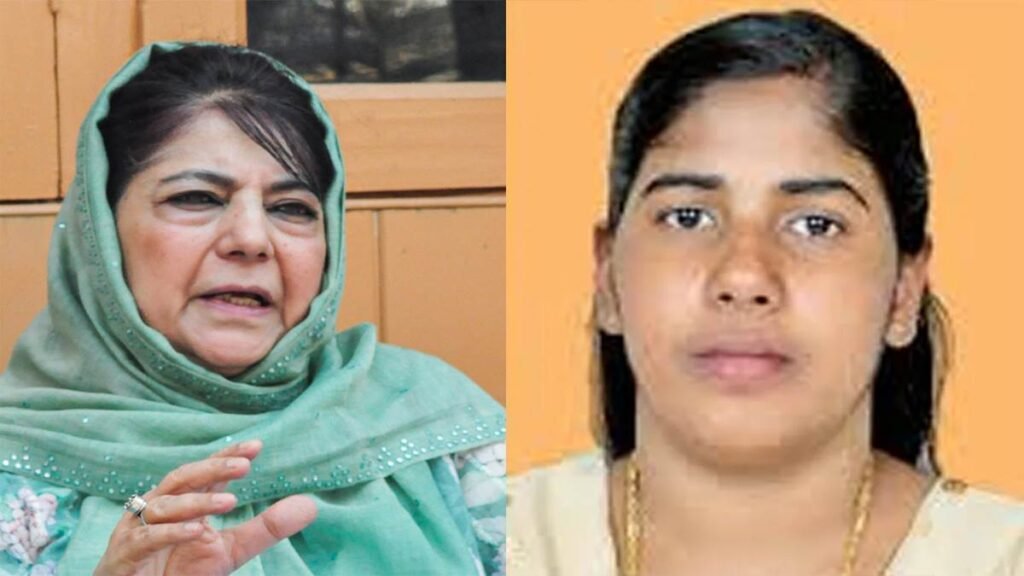Nimisha Priya, a 37-year-old nurse from Kollengode, Palakkad, Kerala, is set to be executed in Sana’a, Yemen, on July 16, 2025, for the 2017 murder of Yemeni citizen Talal Abdo Mahdi. With only days left, Priya has made a heartfelt plea to the Indian government, especially Prime Minister Narendra Modi, to step in and save her life. Her family, supporters, and activists are working tirelessly to secure her release, drawing widespread attention to a case that highlights challenges in international diplomacy, Yemen’s ongoing civil war, and the practice of “blood money” in Sharia law.
A Journey from Hope to Despair
Nimisha Priya grew up in a poor family of daily wage workers in Kerala. At 19, she moved to Yemen in 2008 to work as a nurse and support her family. Unable to find a nursing job in Kerala due to incomplete schooling, she joined a government hospital in Sana’a. In 2011, she married Tomy Thomas, a tuk-tuk driver from Kerala, and they moved to Yemen together. Their daughter was born in 2012, but Yemen’s civil war, which began in 2014, forced Thomas and their child to return to India, leaving Priya alone in Sana’a.
To improve her situation, Priya left her hospital job in 2014 to start her own clinic. Yemeni law required her to partner with a local, so she worked with Talal Abdo Mahdi, a businessman. Their partnership quickly turned problematic. Priya claims Mahdi abused her, took her passport, kept clinic profits, and forged documents to falsely claim they were married. She says he physically and emotionally abused her, including threatening her with a gun. When she reported him to local authorities, her complaints were ignored, and she was arrested instead.

The Tragic Incident and Death Sentence
In July 2017, desperate to escape Mahdi’s control and retrieve her passport, Priya tried to sedate him with an overdose of sedatives. The plan failed, and Mahdi died. In a panic, Priya and a Yemeni colleague, Hanan, dismembered his body and hid it in a water tank. Priya was arrested in August 2017 near the Saudi-Yemen border while trying to flee. In 2018, a Yemeni court found her guilty of murder and sentenced her to death. Hanan received a life sentence. Priya’s trial was conducted in Arabic, a language she doesn’t speak, without an interpreter or proper legal help, raising concerns about fairness. Her appeal was rejected in November 2023, and in December 2024, Yemen’s President Rashad al-Alimi approved her execution for July 16, 2025.
Fighting for a Pardon
In Yemen’s Sharia-based legal system, Priya can avoid execution if Mahdi’s family agrees to a pardon in exchange for “diyya” or “blood money.” The Save Nimisha Priya International Action Council, started in 2020 by her family and supporters, is negotiating with Mahdi’s family. Led by activist Samuel Jerome Baskaran, the group has offered $1 million and additional benefits, like free medical treatment in Kerala for a family member. However, talks hit a snag in September 2024 when the lawyer hired by the Indian Embassy, Abdullah Ameer, asked for an extra $20,000 fee, raising questions about how funds are being used.
Priya’s mother, Prema Kumari, a domestic worker from Kochi, sold her house to fund the legal fight. She traveled to Yemen in April 2024 to be near Priya and has visited her four times in Sana’a’s Central Prison. Prema describes her daughter as hopeful but worn out. “She says she’s okay, but what else can she tell her mother? I believe we’ll go home together,” Prema told Onmanorama. The emotional strain on Prema, who stays in Yemen, is heavy, but she remains determined.
India’s Diplomatic Struggle
The Indian Ministry of External Affairs says it is doing everything possible to help Priya’s family. However, Yemen’s civil war makes things difficult. India has no formal ties with the Houthi rebels, who control Sana’a and Priya’s case. India works with Yemen’s internationally recognized government, led by Rashad al-Alimi, but the Houthis have authority in Sana’a. A 2017 Indian travel ban to Yemen meant Prema needed special permission to visit her daughter.
On July 10, 2025, India’s Supreme Court asked the government to respond to a plea from Priya’s lawyer, Subhash Chandran KR, for urgent action. Congress MP K.C. Venugopal also wrote to Prime Minister Modi, calling the death sentence unfair and pointing to Mahdi’s alleged abuse of Priya. Despite these efforts, the lack of direct contact with the Houthis and the tight deadline make negotiations challenging.

A Nationwide Call for Support
Priya’s case has gained significant attention in India and among Indian communities abroad. The Save Nimisha Priya International Action Council has raised $40,000 through crowdfunding to start negotiations, but up to $400,000 may be needed for a pardon. Social media, especially posts on X, has amplified calls for action, with many portraying Priya as a victim of abuse and unfair circumstances. Her husband, Tomy Thomas, remains optimistic, saying, “I speak with Nimisha. The central and state governments, along with the Ministry, are working on it. We’re hopeful for good news.”
Activists are pushing the Indian government to use its regional influence to negotiate with the Houthis and Mahdi’s family. “India is a major player in this region, and Prime Minister Modi is well-respected. If the government talks to the Houthi leadership, it could make a difference,” said Babu John, a council member, in an NDTV interview.
A Story of Struggle and Resilience
Nimisha Priya’s journey began with a dream to support her family but turned into a nightmare of abuse, desperation, and a death sentence. Her case highlights the risks faced by migrant workers, especially women, in foreign countries. Supporters argue she is a victim of both her circumstances and an unjust legal system. As her execution date nears, her family, activists, and the Indian government are making a final effort to save her through diplomacy, compassion, or blood money.
Last Updated on: Saturday, July 12, 2025 11:47 pm by K Nikhil | Published by: K Nikhil on Saturday, July 12, 2025 11:47 pm | News Categories: India News

Leave a Reply